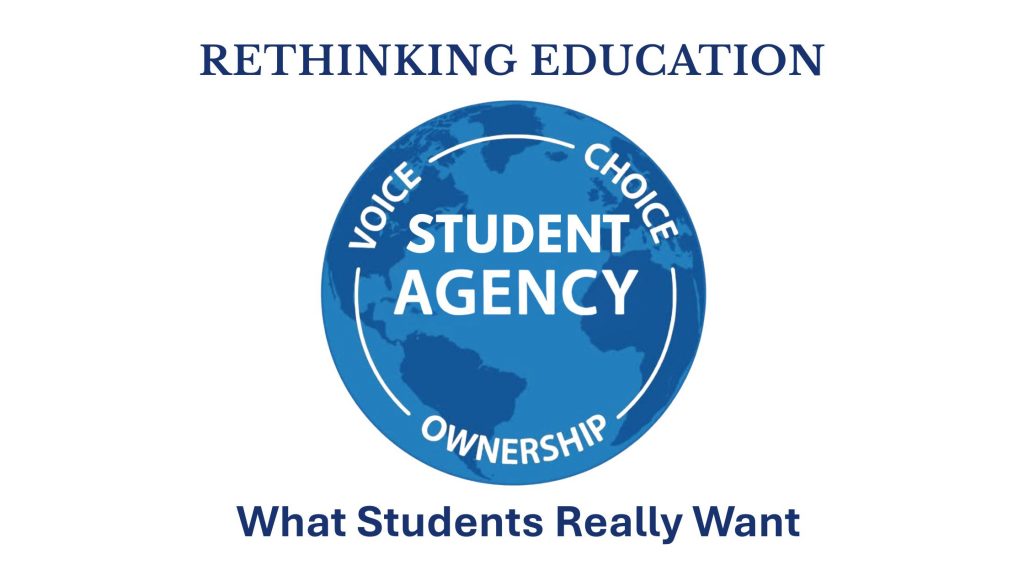Insights from the Student Summit at The Millennium School, Dubai (May 31, 2025)
Dr Amrita Dass

Picture a group of teenagers not venting about exams, but passionately reimagining the future of education—with clarity, creativity, and conviction. That’s what happened at The Millennium School, Dubai, where students gathered for a powerful, no-holds-barred conversation on education, value-creation, well-being, and the imperatives of learning today.
They didn’t show up to complain – they came to find solutions. They were proposing a new kind of school — one where curiosity is the compass, mental health is non-negotiable, and classrooms prepare you for real life, not just a final exam.
Here’s what they had to say. (Spoiler: they made a lot of sense.)
“We’re Studying What Our Grandparents Did”
It all started with a painful truth: the curriculum is stuck in time. As one student put it, “Our parents and grandparents studied the same stuff we’re learning today.” Science students are still forced into the age-old Physics-Chemistry combo, and memorizing theories and textbooks is still more valued than understanding them.
Worse, this outdated model leaves little room for creativity or exploration. Teachers feel pressured to “teach to the test” — and students, in turn, lose the joy of learning.
So, what’s the fix?
Students proposed a more relevant, modern, and human approach:
- Shift the focus from memorizing facts to solving problems
- Let students choose subjects based on interest, not arbitrary “streams”
- Use tools like AI and VR to make abstract topics come alive
- Teach life skills like financial planning, time management, and mental resilience
- Replace rigid exams with interactive assessments, vivas, and projects
In short: less rote, more real.
“We Need Encouragement, Not Pressure”
The emotional toll of schooling came up again and again. Students shared how academic labels like “average” or “weak” chip away at confidence. Many admitted to procrastinating or feeling overwhelmed — but insisted they weren’t lazy. What they lacked wasn’t motivation — it was support.
They called for:
- Positive reinforcement from teachers and parents
- Schools to value emotional growth as much as academic achievement
- An end to comparing students against each other
- More student-led initiatives that build leadership and agency
When we expect students to act like robots, we forget they’re still learning how to be people. These teens made it clear: they want schools to be spaces where being human is okay.
“What’s the Point of School If We’re Not Ready for Life?”
In a powerful series of breakout discussions, students tackled a big question: What does it really mean to be career-ready in 2025 and beyond?
Here’s what they came up with:
- Parents often mean well, but their advice is based on a world that doesn’t exist anymore
- AI is reshaping everything — even creative fields like design, writing, and music
- Risk-taking, like gap years, non-traditional careers with non-linear pathways should also should be encouraged, not feared
- Mental well-being is part of career readiness — burnout in school leads to burnout in life
They didn’t just talk about jobs. They talked about purpose, autonomy, and the kind of life they want to build.
“We’re Growing Up Online – Show Us How to Do It Right”
The digital world came up in full force — not just in terms of tech skills, but digital citizenship. Students outlined a framework they called RISN:
Responsible use, Inclusion, Skills of tomorrow, and Navigating digital life.
They talked about:
- Thinking twice before posting
- Understanding the real-world impact of cancel culture
- Using AI responsibly in academics and communication
- Protecting mental health in a hyperconnected world
They also had stream-specific ideas — like teaching digital financial literacy in commerce, ethics in AI for science students, and media literacy in humanities.
Students Want Agency, Not Just Voice
One of the most striking takeaways? Students don’t just want to be heard — they want a seat at the table.
They proposed:
- More leadership opportunities in shaping what, how, and when they learn
- Student financial councils to help allocate school funds
- Mental health apps designed for students, with features that allow secure sharing with teachers or parents
They’re not asking for full control — just meaningful involvement. And frankly, why not?
Teachers Are Trying Too
Educators shared their own challenges: from keeping up with tech, to feeling overwhelmed by administrative work, to wanting to give more attention to student needs.
They agreed on some key changes:
- Move toward experiential learning, not just textbook theory
- Let AI handle the admin, so teachers can focus on actual teaching
- Align school reform with universities and employers
- Embed well-being across subjects, not just in isolated workshops
It’s clear: teachers care. But the system needs to let them teach like humans, not machines.
Final Thoughts: Building an Education That Listens
This summit wasn’t your typical school event. It was a rare space where students were genuinely seen as thoughtful, capable individuals shaping the future. They didn’t hold back
— and they didn’t need to.
Their message? School should prepare us for life — not just exams.
And it should support who we are — not try to standardize us into who we’re not.
If even half of these ideas were taken seriously, the learning environment might look a lot less like a pressure cooker… and a lot more like a launchpad.
